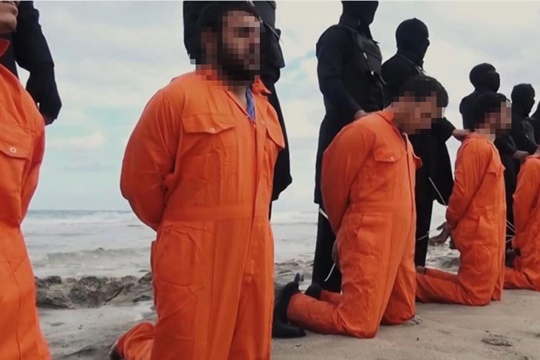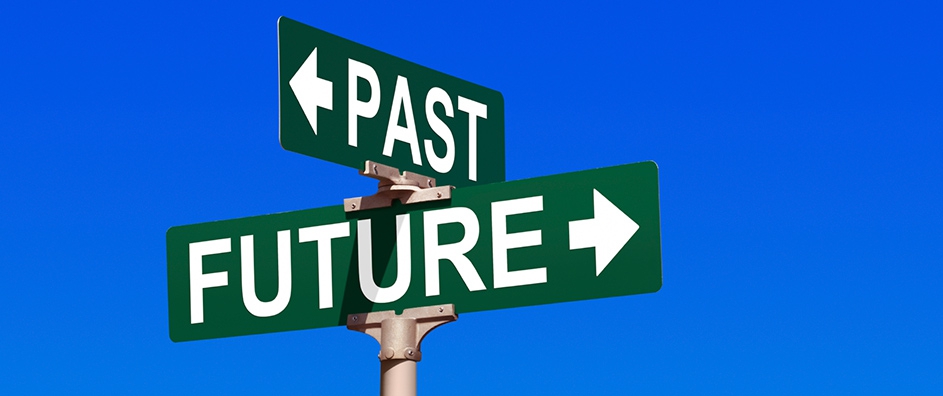The views expressed in our content reflect individual perspectives and do not represent the authoritative views of the Baha'i Faith.
Among the bounties of God is revelation. Hence revelation is progressive and continuous. It never ceases. It is necessary that the reality of Divinity with all its perfections and attributes should become resplendent in the human world. The reality of Divinity is like an endless ocean. Revelation may be likened to the rain. Can you imagine the cessation of rain? Ever on the face of the earth somewhere rain is pouring down. – Abdu’l-Baha, The Promulgation of Universal Peace, p. 378.
Personally, I happen to think that “progressive revelation” occurs not only historically, but right now.
A “revelation” is a divine message brought by a Messenger of God. In the history of religions, a number of Messengers of God have appeared, becoming the founders of the world great religions. The Baha’i teachings explain this historical fact by identifying these successive revelations as “progressive.”
“Progressive Revelation,” a key Baha’i principle, explains that, throughout history, successive founders of world religions reveal new spiritual and social teachings from age to age. Those teachings help civilization advance, spiritually as well as socially. As the world advances, revelations must be updated, according to the needs of the times.
The Baha’i writings explain the primary purpose of the Baha’i revelation this way:
The Revelation of Baha’u’llah, whose supreme mission is none other but the achievement of this organic and spiritual unity of the whole body of nations, should . . . be regarded as signalizing through its advent the coming of age of the entire human race. It should be viewed . . . not only as a further stage in a chain of progressive Revelations, nor even as the culmination of one of a series of recurrent prophetic cycles, but rather as marking the last and highest stage in the stupendous evolution of man’s collective life on this planet. The emergence of a world community, the consciousness of world citizenship, the founding of a world civilization and culture—all of which must synchronize with the initial stages in the unfoldment of the Golden Age of the Baha’i Era—should, by their very nature, be regarded, as far as this planetary life is concerned, as the furthermost limits in the organization of human society. – Shoghi Effendi, The World Order of Baha’u’llah, p. 163.
Here, Shoghi Effendi’s reference to “a chain of progressive Revelations” refers to the historic fact of subsequent religious revelations. However, he also says that in good time, various developments the world over will synchronize to produce “a world civilization and culture.” Those emerging developments in our contemporary world also manifest the idea of progressive revelation.
How? One answer is found in two other Baha’i concepts: (1) the “Major Plan of God”; and (2) the “Minor Plan of God.” Here’s a good definition of the “Major Plan of God”:
Our fellow human beings everywhere are insensibly subjected… to… the continuous operation of simultaneous processes of “rise and of fall, of integration and of disintegration, of order and chaos”. These Shoghi Effendi identified as aspects of the Major Plan and Minor Plan of God, the two known ways in which His purpose for humankind is going forward. The Major Plan is associated with turbulence and calamity and proceeds with an apparent, random disorderliness, but is, in fact, inexorably driving humanity towards unity and maturity…. The acceleration of the processes it generates is lending impetus to developments which… we Baha’is see as signs of the emergence of the Lesser Peace. – The Universal House of Justice, 1998 Ridvan Message.
Distinct, yet complementary, is the “Minor Plan of God”:
Minor Plan of God: The part of God’s Plan that is revealed by Baha’u’llah to His followers and is laid out for them in detailed instructions and successive plans by Abdu’l-Baha, Shoghi Effendi, and the Universal House of Justice. In contrast to the Major Plan of God, it proceeds in a methodical, ordered way, disseminating His teachings and raising up the structure of a united world society. – The Universal House of Justice, Messages 1963 to 1986, p. 747.
The forces of disintegration and integration in the Major Plan of God operate within and among the world’s societies and religions. Today, we typically hear this process described as a polarization between traditional and liberal camps within faith communities as part of their “response to modernity.”
Take the current war between the so-called Islamic State and the so-called “Crusader” western nations. The Islamic State represents the process of “turbulence and calamity” (to put it mildly). Yet the Islamic State is also “inexorably driving humanity towards unity and maturity” through the global response against the Islamic State.
The very definition of “Islam” itself is now being questioned, debated, reappraised, clarified, updated and adapted to contemporary geopolitics—and, slowly but surely, universalized, especially in conversation with other world religions, particularly regarding the rights of religious minorities.
 On February 15, 2015, the Islamic State released a horrific propaganda video of the mass beheadings of 21 Egyptian Christians in Libya. These Egyptian workers, all Coptic Christians, were kidnapped in the coastal town of Sirte in eastern Libya. The video showed men in black—masked jihadists of the “Tripoli Province of Islamic State”—parading the captives, clad in orange jumpsuits, along a Libyan beach. The innocent victims were forced to kneel, and were brutally decapitated shortly after.
On February 15, 2015, the Islamic State released a horrific propaganda video of the mass beheadings of 21 Egyptian Christians in Libya. These Egyptian workers, all Coptic Christians, were kidnapped in the coastal town of Sirte in eastern Libya. The video showed men in black—masked jihadists of the “Tripoli Province of Islamic State”—parading the captives, clad in orange jumpsuits, along a Libyan beach. The innocent victims were forced to kneel, and were brutally decapitated shortly after.
That gruesome act shocked the conscience of political and religious leaders the world over, who voiced their condemnations. So, while the beheadings harked back to the Dark Ages with their brutality, chaos and disintegration, the event sparked condemnations from civilizations all around the world, representing the process of integration and order we see developing around the globe.
Rather than a reactive chorus of condemnation, we need proactive efforts on the part of religious leaders everywhere to act in concert against such brutality. The Universal House of Justice has called on religious leaders throughout the world to take counsel together to eliminate the problem of religious prejudice and warfare, once and for all:
Religious strife, throughout history, has been the cause of innumerable wars and conflicts, a major blight to progress . . . . Followers of all religions must be willing to face the basic questions which this strife raises, and to arrive at clear answers. How are the differences between them to be resolved, both in theory and in practice? The challenge facing the religious leaders of mankind is to contemplate, with hearts filled with the spirit of compassion and a desire for truth, the plight of humanity, and to ask themselves whether they cannot, in humility before their Almighty Creator, submerge their theological differences in a great spirit of mutual forbearance that will enable them to work together for the advancement of human understanding and peace. – The Promise of World Peace, p. 8.
Baha’is believe that the power of Baha’u’llah’s revelation will ultimately cause every religion to advance, as part and parcel of the contemporary manifestations of “progressive revelation” and as the engine of spiritual change in the world today.
You May Also Like
Comments

















These words would not sit well with the majority
Sticking with the Writings would to me have more influence
Peace and Love
Hari